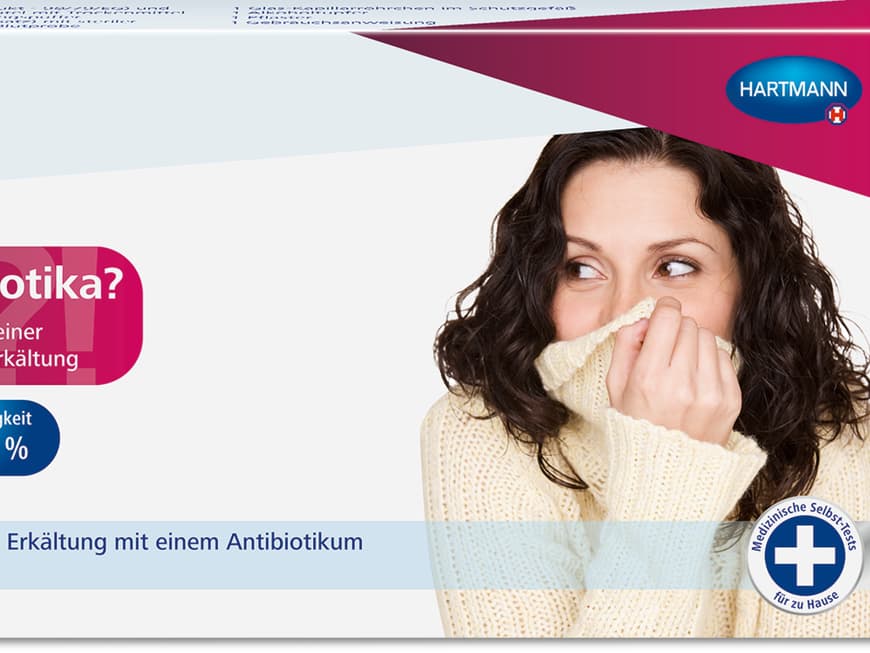A runny nose, cough, scratchy throat or headache and aching limbs - cold symptoms can be a real nuisance and take a lot of energy. Many people hope that antibiotics will provide quick relief. However, they are ineffective against the common cold in nine out of ten cases, as viruses are responsible for the symptoms. Bacteria can still play a role in a cold. If the immune system is weakened by cold viruses, bacteria have an easy time of it. They can settle in the already affected mucous membranes in the upper and lower respiratory tract. This is known as a bacterial superinfection, which can manifest itself, for example, in an increasingly poor general condition or fever. You can now find out quickly and easily at home what stage of infection you are actually in and whether antibiotics are helpful - with the Veroval® self-test "Do antibiotics help?".
The self-test: a quick decision-making aid
To obtain a reliable test result, all you need is a drop of blood. This is taken with a lancing device, mixed with a sample diluent and placed in a test cassette. The test evaluates the concentration of C-reactive protein. This is produced by the immune system in the event of a bacterial infection. The result can be clearly seen within five minutes. If it is positive, bacteria are behind the symptoms of the illness - a visit to the doctor is then essential: for a reliable diagnosis and the prescription of appropriate medication.











